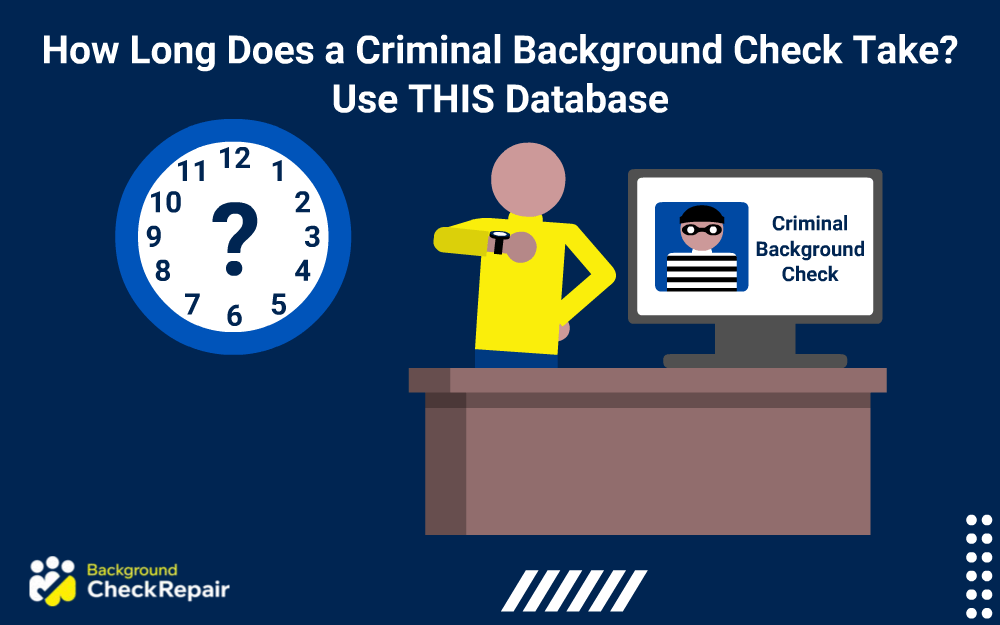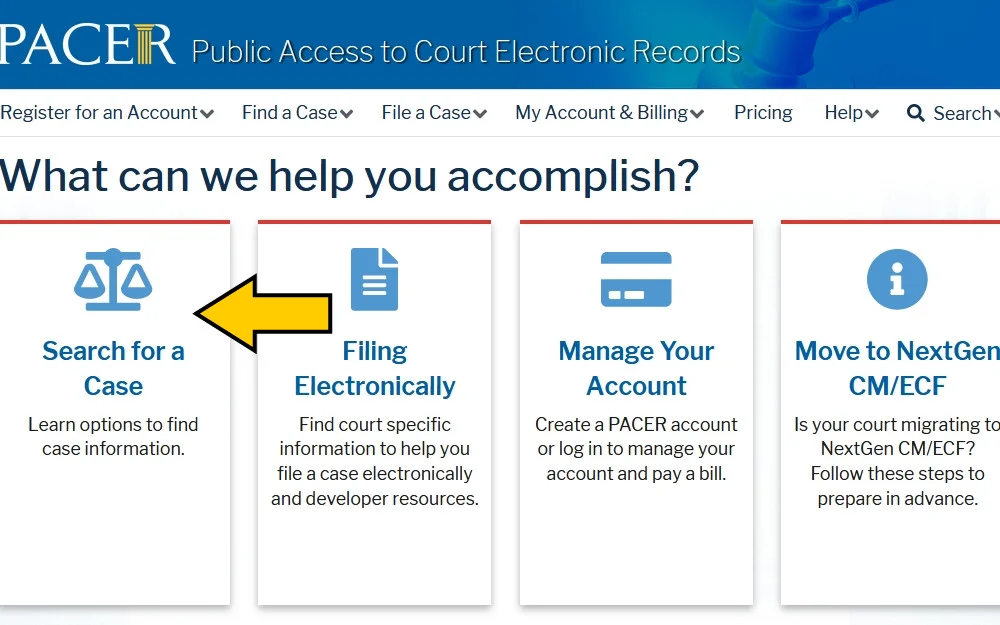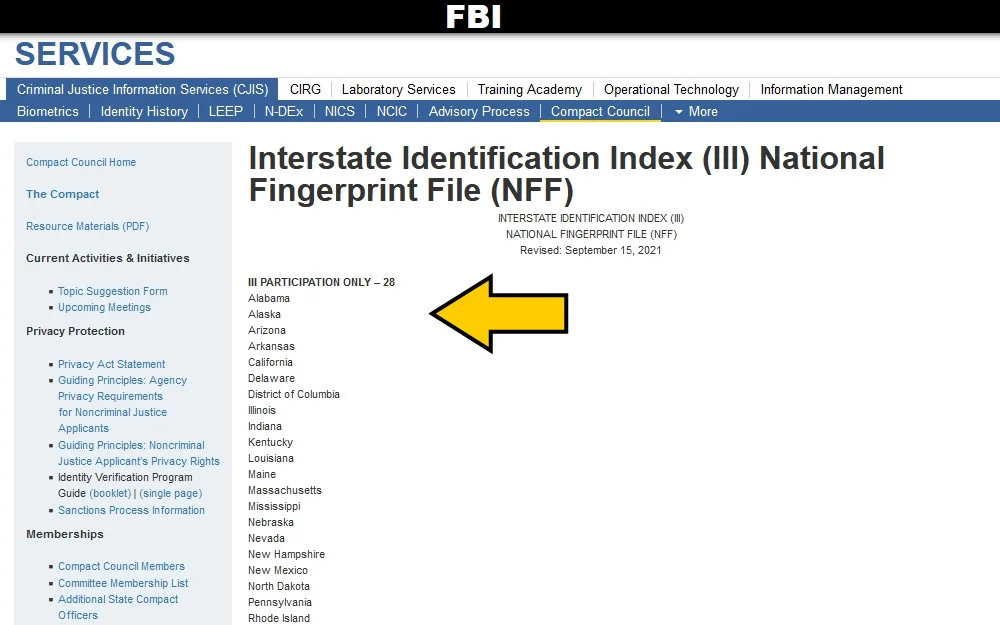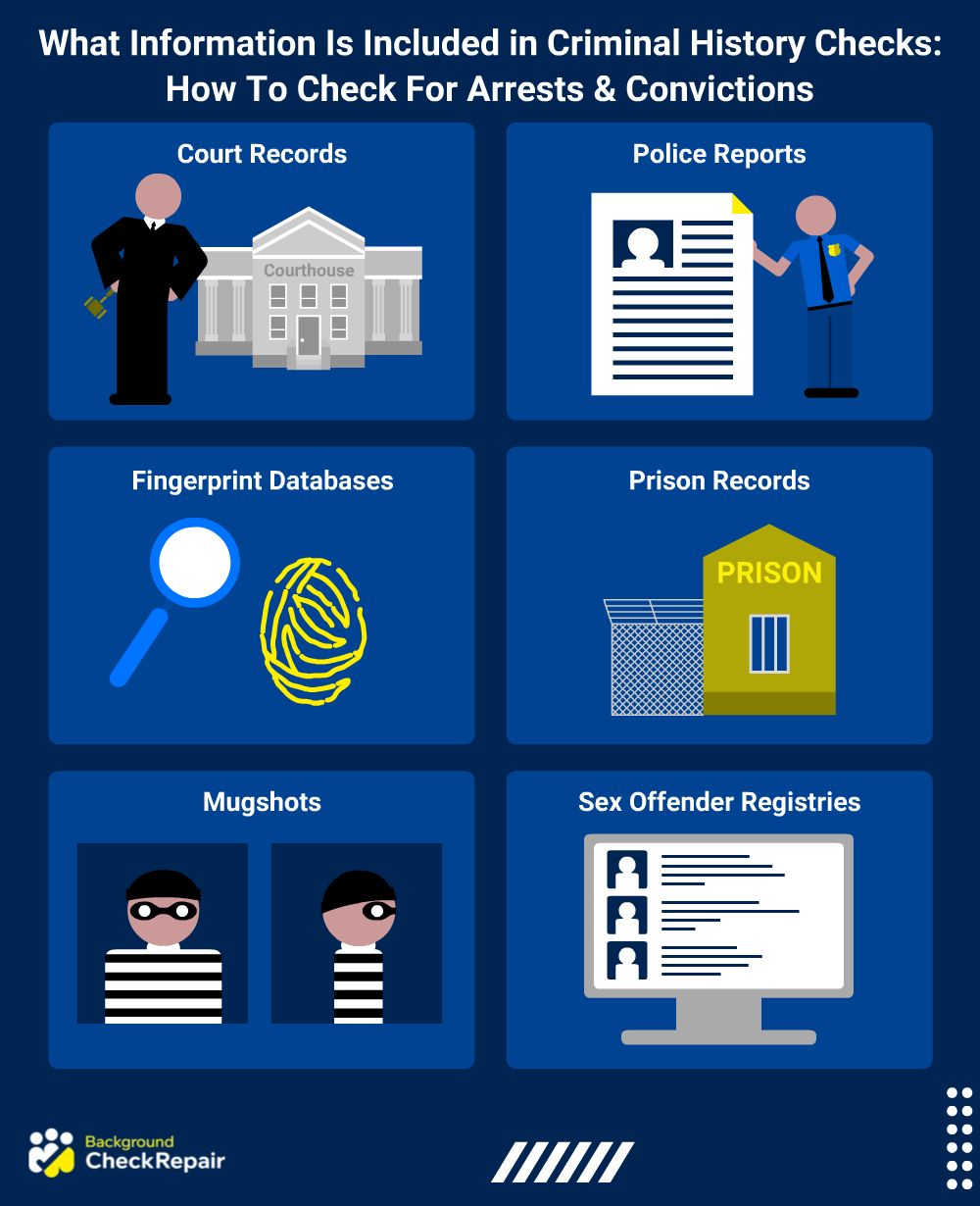We use cookies to ensure that we give you the best experience on our website. If you continue to use this site we will assume that you are happy with it
How Long Does a Criminal Background Check Take? (Instant Results Tip)
 Written by Background Check Repair
Written by Background Check Repair
Criminal Records | June 7, 2024

Table of Contents
Many people applying for jobs ask themselves, ‘how long does a criminal background check take?’ These types of background checks are a vital part of the hiring process, particularly for industries that interact with certain segments of the population, or careers that involve high levels of trust. Therefore, it is important to know not only how long a criminal background check takes but also how you can get the best results.
Criminal background checks generally take between one and three days. However, that time may vary depending on how comprehensive you want your search to be and which database is used.
In fact, there are several ways you can speed up the background check process. One of the best is to use a criminal database. These databases offer an easy way to do your research online, but the information available may be limited.
Which method should you choose? The choice really depends on how thorough and accurate the search results need to be. The best tip to ensure the accuracy of your check (and get instant results in a majority of cases) is to enlist the services of a trustworthy background check company that uses the latest databases.
These providers will give you a well-rounded view of a potential employee’s criminal history more quickly because they don’t have to file paperwork with courts directly and can instead rely on their updated databases. In fact, there are even some free criminal history check providers available.
How Long Does a Criminal Background Check Take: Background Check Turnaround Time
When hiring new employees, it’s crucial to ensure that you do everything possible to protect your business. This means conducting a comprehensive criminal background check on all potential hires. Understanding the methods to check someone’s criminal history is fundamental for improving your business’s hiring process. The turnaround for how long this takes depends upon the documents you need to access and how comprehensive your search is.
Generally, a criminal background check will take between one and three days to complete. However, this timeframe can vary depending on the resources you have available to you. For example, if you need more detailed or accurate information, it may take longer to get the results you need.
Criminal record checks can be done relatively quickly and easily online. There are several databases that you can access, which will provide you with a list of criminal offenses committed by the applicant in question. However, these databases often rely on manual updates. If you want to know if an applicant has a drug history or had been in police custody, criminal background screening services are the way to go because of the resources available.
Typically, criminal background checks are used to keep your business safe. However, sometimes these reviews may cause problems for applicants. Background check companies can guide you through the process by providing you with resources and advice regarding the background check report you are requesting. While a thorough criminal record check takes more time, it can help you to make an informed decision about who to bring into your business.
Understanding Which Database To Use for Background Checks
When a company needs to fill a position that has been deemed “sensitive,” or requires a security clearance, they will require what is called a federal background check. This type of check goes beyond what state-level checks provide and looks into crimes that were prosecuted at the national level. How long does a criminal background check take depends on whether federal or state-level databases are being searched.
Federal Background Checks
There are two types of records that can be searched as part of a federal criminal background check: district court records and appellate court records. District courts are the trial courts where federal crimes are prosecuted. If an individual is convicted of a crime in district court, their case will then be appealed to the appellate court level. If an individual is convicted of a crime in the appeal court, their case can still be brought back to the district court for further litigation.
Federal public records are available through the Public Access to Court Electronic Records System (PACER), a portal that allows any member of the public to search federal court records. Employers can use PACER to determine if an applicant has been convicted of a federal crime.
While state background checks are typically run through the Department of Motor Vehicles (DMV) and criminal justice information systems, federal background checks go beyond these two sources. The FBI maintains a database called the National Instant Criminal Background Check System (NICS), which is used by firearms dealers to determine whether or not someone is eligible to purchase a gun. The system contains records of individuals who are prohibited from owning a firearm, including those who have been convicted of a felony or misdemeanor. Because it is maintained by the FBI, NICS provides detailed records about an individual’s criminal history.
While the FBI’s NICS system contains detailed records on an individual’s criminal history, not all states contribute data to the system. Because state submission to NICS is voluntary, its records are considered incomplete.2
The FBI also maintains a database of criminal records called the Interstate Identification Index (III). The III contains information on individuals who have been arrested for or convicted of crimes in the United States and makes it easier for states to transfer data. The FBI’s National Fingerprint File (NFF) is also included in the III. The NFF contains fingerprints of individuals who have been arrested, charged with a crime, or convicted of a crime.

State Background Checks
State-level background checks (also known as tier 1 background checks in most jurisdictions) operate similarly to how they work on the federal level: by providing information about crimes committed at the state and/or local levels. District and circuit courts in each state are responsible for maintaining records on state-level crimes. Employers can request information from these courts by petitioning their local clerk of court. Keep in mind that using a full name is considered best practice with this method, but if this information is lacking you can first find a person’s middle name.
State background checks will also include information from an individual’s state department of motor vehicles (DMV). The DMV keeps track of driver’s licenses and identification cards, and any violations or suspensions an individual may have.
Criminal justice information systems store records on crimes that have been prosecuted in state court, and this information is also accessible through a state-level background check. Local law enforcement agencies will also maintain records, including police reports, arrests, and misdemeanor and felony records. In addition, local courts will keep their own set of district court records, as well as county-level circuit court records for felonies that are prosecuted at the state level.
It is important to note that state background checks are not intended to replace federal ones but rather provide a complete picture of an individual’s criminal history. State records can include arrests and convictions at both the state and county levels. States typically do not include information on federal crimes in a background check but may provide general (and often incomplete) information about open cases or convictions against an individual.
Typically, the more serious a crime is, the longer it will take to access the records. For example, crimes such as murder and rape take much more time than petty theft or public intoxication. Felony records tend to stay on record for decades with some states, while misdemeanors may only remain on a record for a few years. As a result, the time it takes to retrieve public records and criminal history will depend on whether charges are pending, if appeals are present, or how long ago the crime was committed.
The most comprehensive background checks will include information from all of these sources, providing a complete picture of an individual’s criminal history at both the state and federal levels. However, because some states do not contribute data to NICS or III databases, employers should understand how each source might impact their hiring process.
The Difference Between Instant Background Checks and Complete Criminal Background Checks
One way to speed up the search process is to obtain an instant background check. Even though most comprehensive background checks take several days, instant background checks can be completed within minutes and still provide some basic details about a person’s criminal history. While this information does seem helpful, it is incomplete – meaning the only records found are those that have been reported to these databases by law enforcement agencies or other authorized sources. How long does a criminal background check take will always depend on the records you want to access.
An individual’s full rap sheet might not show up in an instant background check because it does not have to be reported to the particular database used. Additionally, many databases do not include information about arrests that did not result in a conviction. Thus, someone who was arrested but found not guilty will not be reported in an instant background check.
Complete criminal searches include all known information about a person’s criminal record and are typically more thorough than other types of background checks. However, this type of report can take weeks or even months to complete because it is sent directly from the courts where the criminal records are held to the requesting party. Additionally, if an individual’s rap sheet is extensive or complicated, it may take longer than usual for that information to be compiled into one report.
While it is recommended to use both types of checks for employment purposes, instant background reports can provide a stopgap. For instance, if an employer has reason to believe that a particular applicant may have committed crimes in the past, an instant report can help to narrow down the search quickly. But since these reports provide a limited view of an individual’s criminal history, it is always a good idea to run a complete background check for more detailed information.
Background checks verifications are a necessary part of the hiring process for many businesses. By ensuring that all potential employees have a clean criminal record, you can minimize the chances of hiring someone with a history of drug use, a history of violence, or other criminal behavior.
Whichever route you decide to take, be sure that you are using reliable resources and following the legal requirements of your state. Certain types of information can be restricted or prohibited from public release. For example, the Fair Credit Reporting Act (FCRA) prohibits the reporting of sealed or expunged criminal records, so an employer should never attempt to access records that have been restricted or removed.1

What Information Is Included in Criminal History Checks: How To Check For Arrests & Convictions
An individual’s criminal record is the history of their interactions with law enforcement. An arrest, conviction, sentencing, parole violation, dismissal, and not guilty verdict can be included in this type of report. In addition to this data, other identifying information can also be included. This may have information about height, weight, eye, and hair color, identifying marks, or tattoos that are part of the individual’s anatomy. It may also consist of different names used by the person in their lifetime, fingerprints, social security numbers used, and state and federal identification numbers.

The criminal record of an individual may be obtained by running criminal history searches through the use of various state and federal databases.
It is essential to keep in mind that not all criminal convictions will appear on a background check. For example, if an individual were arrested but never convicted of a crime, this information would not be available on a standard background check. Furthermore, many juvenile records are sealed and inaccessible to the public. Plea-down deals that result in a conviction for a lesser crime also may not be reported in some types of background checks.
Criminal history searches will provide the most accurate information about an individual’s criminal record and can include data obtained from multiple sources, including:
- Court records
- Police reports
- Fingerprint databases
- Prison records
- Mugshots
- Sex offender registries
While a criminal record check can provide a great deal of information about an individual, it is important to remember that not all criminal convictions will be reported.
Performing a Pre-Employment Background Check with Reputable Background Check Companies
Whether you are a small business or a large corporation, pre-employment background checks will save you time and money in the long run. As an employer, you have an obligation to your current employees and customers to make sure that each person hired into your company is legally authorized to work in the United States and will be a positive addition to your team.
Reviewing the resume of an applicant is rarely enough when hiring new employees. However, searches into their past can create privacy concerns. When done correctly, a pre-employment background check can help to ensure that your company is in compliance with the Fair Credit Reporting Act (FCRA) and other federal and state regulations, including Title VII of the Civil Rights Act of 1964 and local ban the box laws.
Since federal regulations direct that any criminal background check performed on an employee must be reviewed by a legally compliant third-party provider, employers need to know when they should conduct a background check and how long this process will take. Typically, federal regulations require employers to perform pre-employment background checks for positions that involve interaction with children under the age of 18 and for employees who will need a security clearance.
When deciding when to perform your pre-employment background checks, you may want to rely upon internal company policy and guidance from a trusted employment attorney in the state where your company is located. Obtaining a background check that complies with local and federal laws will vary depending on the specific regulations in your state. In accordance with federal and state privacy and discrimination regulations, many employers choose to wait until after a job offer has been made to the candidate to conduct the pre-employment background check.
The FCRA sets the minimum standards for the use of consumer reports by employment screening companies. The Act gives individuals the right to know what information is contained in their consumer report, as well as the right to dispute inaccurate or incomplete information. The FCRA requires that employers provide written notification to the applicant that a background check will be conducted.3 It almost limits what information a screening agency can include in a report and provides certain rights to the employee.
By law, you should use a screening company that is legally compliant with FCRA privacy regulations. A trustworthy background check vendor will offer both basic and comprehensive level check options that can be customized to match your specific needs as an employer.
While there are several free online resources that you can use to perform simple background checks, these websites are often out-of-date and do not meet all legal requirements at the state and federal levels. Further, the information provided can also be unreliable and inaccurate because these websites do not have access to all current criminal records. Pre-employment background checks performed with these types of online services are not compliant with federal and state regulations, so it is best to avoid free websites and partner with a legally compliant third-party provider. Using a free site can also risk your computer’s cookies being compromised and used by hackers to access confidential company information.
In choosing a reputable employment background check company, you should always request total transparency. When done correctly, a pre-employment background check will take anywhere from 3-10 business days, so it is essential to plan ahead.
How long does a criminal background check take should only be one thing you consider when choosing a pre-employment background check company. You should also consider the accuracy of their reports, how current they are, and the customer service you will receive. When selecting a provider, be sure to ask the following questions:
- How long has the company been in business?
- What is the company’s compliance policy?
- Are they accredited or certified by any third-party organizations?
- What is the company’s refund policy?
- How do they ensure the accuracy of the data?
- Do they have access to all criminal records?
Background checks are an important part of the hiring process, so it’s worth taking care to find a reputable company that is compliant with state and federal regulations. Be wary of companies that don’t meet federal guidelines or offer free access to criminal records. When considering how long does a criminal background check take, keep in mind that the process can cause delays when the right databases aren’t used, so choose a company that can provide both quick and accurate information.
References
1Guerin, Lisa. 2021. Getting Hired With an Arrest or Conviction Record. NOLO. 1 December 2021. Web. <https://www.nolo.com/legal-encyclopedia/getting-hired-with-arrest-conviction-record.html>
2Giffords Law Center. 2021. NICS & Reporting Procedures. 1 December 2021. Web. <https://giffords.org/lawcenter/gun-laws/policy-areas/background-checks/nics-reporting-procedures/>
3Collatz, Andrea. 24 August 2020. FCRA Compliance for Background Checks: What Is It & Why Is It Important? Shareable. 1 December 2021. Web. <https://hires.shareable.com/blog/fcra-compliance-background-checks>
